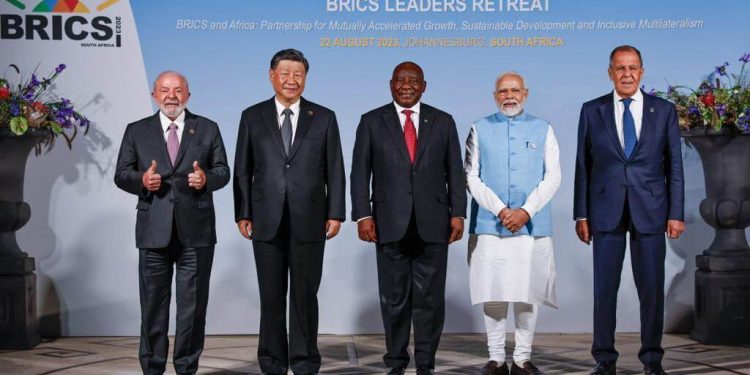South African President Cyril Ramaphosa has revealed that Saudi Arabia and Iran, along with four other countries, will become new members of the BRICS group next year. This announcement was made on the final day of the group’s annual summit held in Johannesburg. BRICS, consisting of China, Brazil, South Africa, Russia, and India, operates based on consensus and positions itself as a counterbalance to Western powers.
The group unanimously agreed on the framework for the expansion process, encompassing “the guiding principles, standards, criteria, and procedures of the BRICS expansion process,” as stated by President Ramaphosa. This expansion is set to occur in phases, with Argentina, Egypt, Ethiopia, and the United Arab Emirates joining Saudi Arabia and Iran as full BRICS members in January 2024.
Chinese President Xi Jinping hailed this expansion as a historic moment, marking a new beginning for BRICS cooperation. He expressed optimism that the inclusion of these new members would inject fresh vitality into the collaboration, further strengthening global peace and development efforts.
Iran, one of the newly admitted members, welcomed the historic development as a strategic success for the nation’s foreign policy. Ethiopian Prime Minister Abiy Ahmed also lauded the moment, emphasizing Ethiopia’s readiness to contribute to a global order that promotes inclusivity and prosperity.
The expansion reflects BRICS’ aspiration to transform global governance into a multipolar world order, prioritizing the perspectives and voices of countries from the Global South. The addition of countries from the Middle East and North Africa (MENA) region, such as Saudi Arabia, the UAE, Iran, and Egypt, signifies a significant shift in representation within the group.
This expansion has been pursued energetically by Russia and China, in part due to increased sanctions from Western nations. While BRICS has been a formal entity for 15 years, it has been viewed as less effective due to its diverse political and social interests. The entry of new members presents both opportunities and challenges, as it will require consensus among a larger and more varied set of countries.
The summit in South Africa, attended by over 50 heads of state and leaders, has concluded with the anticipation of a transformed BRICS that aims to play a more impactful role on the global stage.

